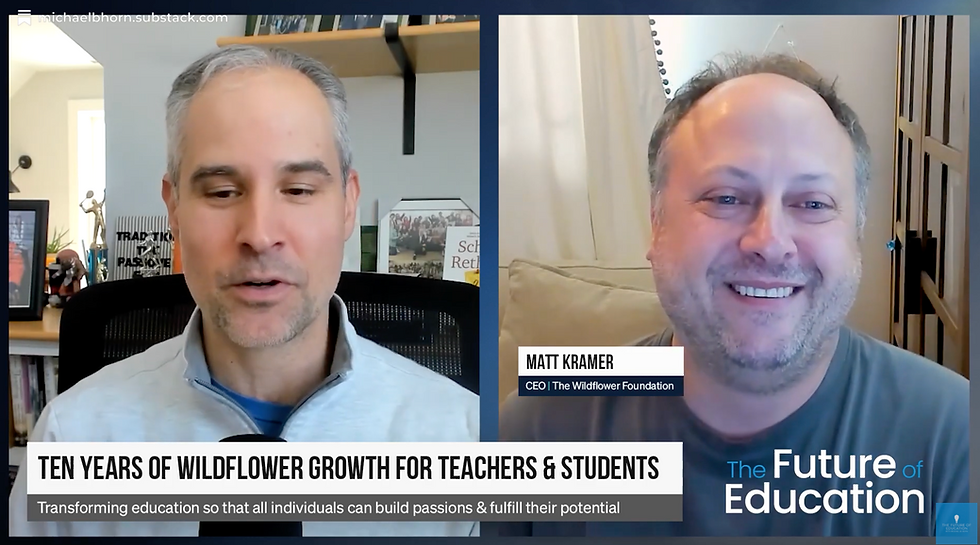Summer Break, The Montessori Way
- Jenny Tak
- Jun 12, 2017
- 3 min read
Updated: Feb 14, 2024

Kari Frentzel has been a Montessori elementary educator for the past ten years following her first career as an engineer and manager in industry and healthcare. She is co-head of school at Wild Rose Montessori, a Wildflower school in Cambridge, Massachusetts.
The school year is winding down. Teachers feel it as we squeeze in our final lessons and encourage students to finish projects. Students feel it as they prepare for year-end special events and make plans for getting together with friends once school is out. And certainly parents feel it as they rush to finalize plans for summer camps, vacations, lessons and babysitters.
But does a break from school necessarily mean a break from learning? Of course not. Can families do anything to make sure that the summer months are supporting their child’s development? Yes, with some attention to what your child is telling you – through their actions and words – and with a bit of flexibility in thinking and planning.
At Wild Rose Montessori, as at other Montessori elementary schools, we base our students’ learning experiences on some fundamentals: Children learn best when they are interested in what they are doing; children are capable of doing many things for themselves; children thrive on long, uninterrupted periods of time in which to explore their interests; and children need a personal understanding of the world to help them find their place in it. For parents, anchoring your child’s activities in these fundamentals will make for an enriching summer.
Here are some ideas to get you started:
Explore your child’s interests. Summer can be an ideal time to expand on a positive experience your child had during the year. Think back over the past few months. What was an especially exciting time for your child? Learning to ride a bike? Baking brownies with Dad? Seeing the daffodils bloom? Help them take this interest a step further this summer. Take bike rides together in different parts of your city, teach them to make chocolate mousse, plant a garden.
Let your child take care of him or herself. During the school year, families are often dictated by strict schedules, which can make it hard to let children do things on their own. Use these summer months to slow down and let your child become more independent. Children can prepare their own breakfast or lunch or help cook part of the family dinner. They can wash and fold their own laundry. They can feed the family pet and help wash the car. Just remember that these tasks, although routine to you, may be new to your child. Make sure you explain things well and give them lots of time for learning and practice.
Allow for lots of free time. Creativity and new ideas do not happen quickly. Children need time for exploration and reflection. Give them this gift of time. During the school year, busy schedules can often curtail time for uninterrupted exploration. Children who are not used to this free time may complain with, “I’m bored” or “I have nothing to do.” Don’t panic – this is the first step to your child finding his or her creative outlet and embarking on something amazing! Your job at this time is to stand back and not to “solve” their boredom problem.
Spend time in nature. In many areas, summer means warmer weather, and often is the best time to be outside. Don’t miss this opportunity! Time in nature allows your child to discover how the world works – the plants, the animals, gravity, sunlight, water, air, the stars. An understanding gained by personal experience provides a firm foundation for future studies in science, platforms for creative thinking and writing and, most importantly, a compassion for our earth and all things on it.
You may be asking, “But what about reading, what about math?” Yes, these are important too. So, please, go to your public library. Take out lots of books – they’re free! Take out books your child is interested in. Take out books you’re interested in. Take out books neither of you is interested in – you may be surprised. For math, the best practice is practical life and can happen all summer. “This recipe calls for two eggs, but we’re doubling it, how many is that?” Or, “Our bike ride this afternoon is one mile long. How long will it take us?” Or, “Our tomato plants need to be spaced 24 inches apart. How many can we fit in this row?” This is the kind of math your child needs to consolidate the abstract concepts learned during the year.
Summer break? Not really a break at all, just a different learning environment.



